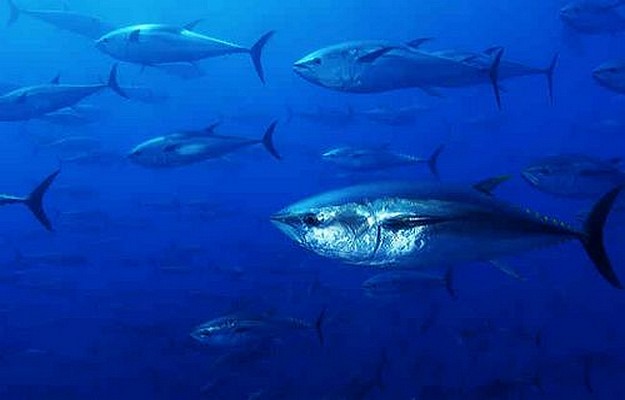-
Tips for becoming a good boxer - November 6, 2020
-
7 expert tips for making your hens night a memorable one - November 6, 2020
-
5 reasons to host your Christmas party on a cruise boat - November 6, 2020
-
What to do when you’re charged with a crime - November 6, 2020
-
Should you get one or multiple dogs? Here’s all you need to know - November 3, 2020
-
A Guide: How to Build Your Very Own Magic Mirror - February 14, 2019
-
Our Top Inspirational Baseball Stars - November 24, 2018
-
Five Tech Tools That Will Help You Turn Your Blog into a Business - November 24, 2018
-
How to Indulge on Vacation without Expanding Your Waist - November 9, 2018
-
5 Strategies for Businesses to Appeal to Today’s Increasingly Mobile-Crazed Customers - November 9, 2018
Marine populations halved since 1970 says WWF
A new report prepared by the World Wildlife Fund and the Zoological Society of London says populations of marine mammals, birds, fish and reptiles have fallen by 49 percent since 1970.
Advertisement
Consumers can play their part in reversing the damage to the oceans by ensuring all the seafood they eat is certified as sustainable by the Marine Stewardship Council and reduce waste and litter.
For example, in addition to 29 percent of global fish stocks that are overexploited, overfishing now threatens around one in four species of sharks, rays and skates.
However, a recent study sounded the alarm over widespread coral bleaching in the Pacific – a phenomenon that occurs when corals are stressed due to increasing temperatures and acidity.
Another main report finding is that three-quarters of the world’s coral reefs are presently threatened. With over 25 per cent of all marine species living in coral reefs and about 850 million people directly benefiting from their economic, social and cultural services, the loss of these reefs would be catastrophic.
“Ocean warming from climate change and ocean acidification from excess carbon absorption significantly threaten reefs over the long-term”.
There has been significant declines in habitats such as mangroves and seagrasses, on which many other species depend, while numbers of commercially valuable fish, such as mackerel and tuna, have plummeted by as much as three quarters since the 1970s, the report found.
To reverse the downward trend, the NGO called on global leaders ensure that ocean recovery and coastal habitat health feature strongly in the implementation of the UN’s sustainable development goals that will be formally approved later this month. He also said the United Nations Conference on Climate Change, to be held later this year in Paris, was an opportunity to “slash the emissions contributing to the climate and ocean crisis”.
“There is a massive, massive decrease in species which are critical”, Marco Lambertini, director general of WWF global, told Reuters.
“Considering the ocean’s vital role in our economies and its essential contribution to food security – particularly for poor, coastal communities – that’s simply unacceptable”, he added.
‘The collapse of ocean ecosystems could trigger serious economic decline – and undermine our fight to eradicate poverty and malnutrition’.
Advertisement
“We can and we must correct the current course now”.




























